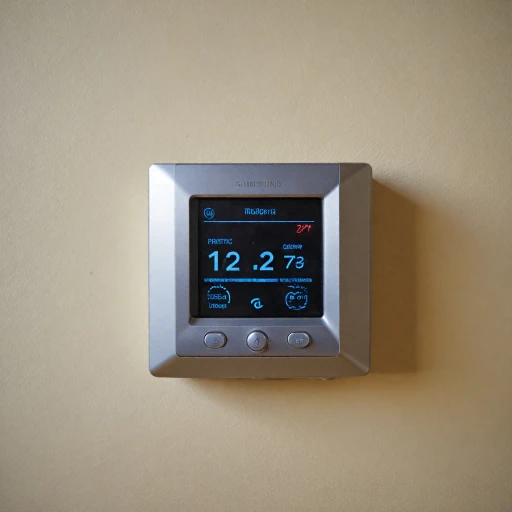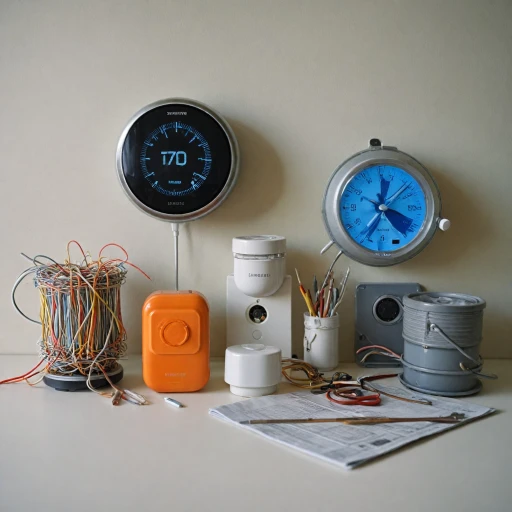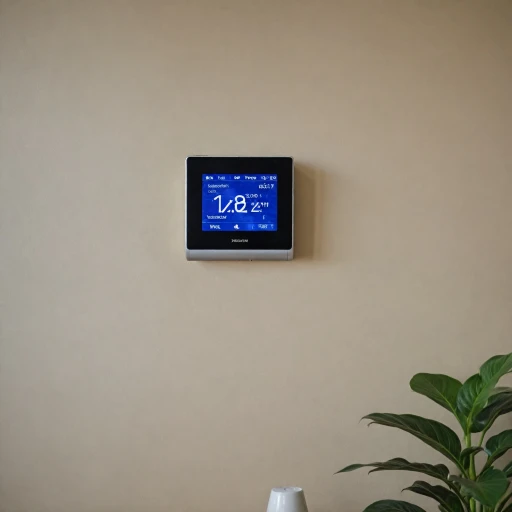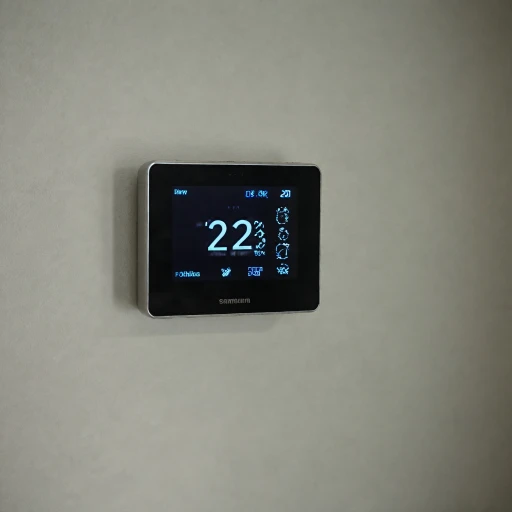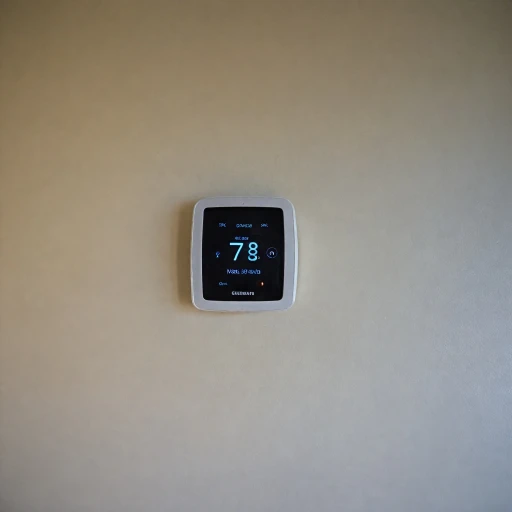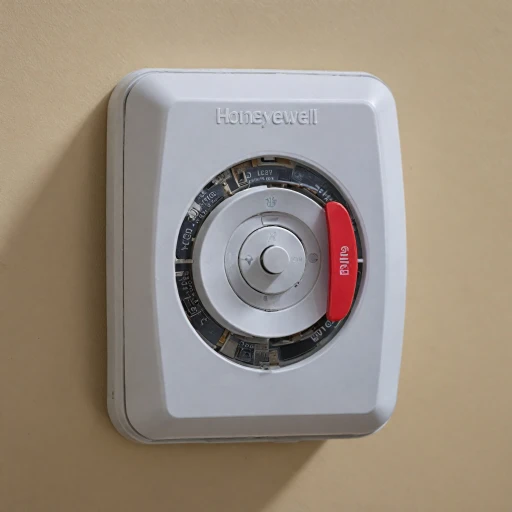
Understanding the Basics of Smart Thermostats
Smart Thermostats: Unlocking the Power of Connectivity
A smart thermostat goes beyond the traditional ability to adjust temperatures. It offers seamless integration with your home’s existing systems, enhancing energy efficiency and comfort through advanced features. This evolution in home climate control systems is driven by connectivity, allowing users to remotely manage their indoor unit, whether it's an MSZ, Mitsubishi Electric, or other models like MSZ NAW or MSZ NAS.
The appeal of smart thermostats lies in their compatibility with various models and seamless integration with remote control options. For instance, setups involving the PLFY, PKFY, or PEFY variants can be easily managed. This adaptability ensures that whether you have an electric MSZ, MSY MSZ, or other Mitsubishi indoor units, you can find a compatible solution for enhanced climate control.
When exploring smart thermostats, there are numerous benefits such as optimizing energy use and gaining deeper insights into your home's energy consumption. Additionally, the feature-rich interfaces available today can help ensure you’re not just managing the temperature, but also contributing to a greener planet. Through a dedicated platform, you can learn more about understanding the role of such equipment, akin to understanding the role of the Google Nest Power Connector in smart thermostats to appreciate their full potential. These insights form the foundation for making your heating and cooling systems work smarter, not harder.
The Role of WiFi Adapters in Smart Thermostats
Exploring the Benefits of WiFi Adapters
Smart thermostats have revolutionized the way we manage indoor climates, and WiFi adapters play a significant role in this transformation. Understanding how these adapters function can enhance your control over the Mitsubishi Electric MSZ series, including models like the MSZ-GE12NA-8, MSY MSZ, and even electric MSZ units. WiFi adapters enable connectivity between your smart thermostat and devices such as smartphones and tablets. This connectivity facilitates remote control capabilities, allowing you to adjust settings from anywhere, whether you're lounging on the couch or traveling across the country. Here's how these adapters improve your Mitsubishi unit experience:- Remote Control: WiFi adapters let you control your indoor unit remotely. By using compatible devices, such as those in the MSZ and PEFY series, you can manage the temperature and other settings without needing to physically be near the control panel.
- Energy Monitoring: Many adapters provide insights into energy consumption, assisting you in identifying patterns and optimizing for efficiency. Models like the PLFY NBMU or compatible Mitsubishi units benefit from these features, translating into potential cost savings.
- Enhanced Compatibility: Whether you're managing a PKA or PEFFYP unit, a WiFi adapter ensures seamless integration with various Mitsubishi Electric systems, including those in the NKMU PCFY and SLZ SEZ lines.
Installation Guide for the Mitsubishi MSZ-GE12NA-8 WiFi Adapter
Step-by-Step Installation for Optimal Performance
Installing a WiFi adapter on your Mitsubishi MSZ-GE12NA-8 can transform your HVAC system into a modern, energy-efficient machine. As you embark on this journey, keep in mind the unique features and compatibility of your model with the WiFi adapter. This section will guide you through each critical step to ensure a smooth and successful installation that aligns perfectly with energy efficiency goals discussed previously.- Gather Necessary Tools and Components
- Before you begin, ensure that you have all required tools ready. You will need a basic set of tools such as a screwdriver, pliers, and the specific WiFi adapter designed for the Mitsubishi MSZ-GE12NA-8.
- Confirm that your new adapter is compatible with the indoor unit types such as the msz, pka, and msy msz series. Ensure all components are parallel with your Mitsubishi electric msz setup.
- Power Off and Safety Precautions
- Safety first: disconnect the power to your Mitsubishi electric msz unit. This crucial step helps prevent electric shocks and damage to your HVAC system.
- Ensure the area is dry and free of any conductive materials.
- Access the Control Board
- Access the control board of your indoor unit, such as the pkfy nkmu or other compatible models, by carefully removing the protective panel.
- Beware of delicate circuits in the control unit. These elements are integral to your system's performance and need careful handling.
- Connect the WiFi Adapter
- Follow the manufacturer's instructions to connect the WiFi adapter. You may use the adapter's manual as a guide, ensuring all connections align with your HVAC model’s specific configurations including msz naw or slz.
- For further precision, ensure the adapter is connected to control terminals, harmonizing with remote-controlled elements, like the pefy nmau.
- Testing and Calibration
- After installation, restore the power supply and initiate a basic test of the system. Ensure the remote control functionality is optimal and that the adapter is effectively communicating with your network.
- Conduct an accuracy check by following advanced guidelines involving system calibration protocols akin to understanding temperature sensors for Nest thermostats.
Maximizing Energy Efficiency with Your Smart Thermostat
Optimizing Temperature Control and Lowering Your Bill
To maximize energy efficiency with your Mitsubishi Electric MSZ-GE12NA-8 smart thermostat, leveraging the added WiFi functionality can greatly optimize the control over your indoor unit. Here’s how you can make the most of it:- Smart Scheduling: Utilize the remote control features, empowered by the WiFi adapter. You can schedule your heating and cooling plans based on your living habits. This ensures your PEFY, PEFY NMAU, or MSY MSZ systems only run when necessary, maximizing energy savings.
- Adaptive Learning: The WiFi adapter helps the MSZ series, including MSZ NAB and MSZ NAS, to adapt to your preferences over time. This means your NAW MSZ or MSY MSZ can learn and automatically adjust for optimal comfort without excess electric consumption.
- Geolocation Features: By enabling geolocation, your compatible Mitsubishi system can adjust the settings based on your location. This feature allows your PKFY NKMU or PLFY NBMU to conserve energy by reducing power when you're away, thereby efficiently using nkmu pcfy.
- Use of Remote Monitoring: The WiFi capability means you can monitor in real-time via the app from anywhere. This remote control ensures you can make quick adjustments to your PLFY, PCFY, or SEZ SLZ, even when you’re not home.
- Utility Integration: Some smart thermostats can even communicate with local energy providers. This can give you insights into when electricity is cheaper, allowing your MSZ compatible units to run more cost-effectively.
Troubleshooting Common Issues with Smart Thermostats
Resolving Temperature Control Issues
If you’re experiencing temperature fluctuations with your smart thermostat, first, check if your indoor units like the Mitsubishi MSZ or the PKFY models are accurately reporting room temperatures. Sometimes, an issue with the remote sensors can lead to incorrect readings, affecting the overall comfort levels.Ensuring Compatible Connections
Compatibility issues can arise with certain units like the PKFY NKMF or the PEFY NMAG models. Ensure you're using the correct WiFi adapter specified for your particular Mitsubishi Electric system. This is crucial for maintaining seamless remote control functionalities and avoiding communication breakdowns between your indoor unit models (such as MSY MSZ or PEFY NMAU).Managing WiFi Connectivity Problems
Connectivity disruptions often cause smart thermostats like the Mitsubishi MSZ series to lose remote capabilities. Make sure your adapter is securely installed and check for any firmware updates that might be available for your PKA or PLFY NBMU models. A stable WiFi connection is fundamental for efficient electric control, ensuring your system operates as intended.Addressing Power Source Issues
If your thermostat is not powering on, it might be due to an incompatible power source or faulty wiring. Models such as the SLZ or SEZ are especially sensitive to their electric inputs. Conduct a thorough examination of the setup of these units and consult your manual to determine the correct power requirements for continued operation.Optimizing System Performance
To optimize performance further, integrate proper maintenance routines and consider monitoring energy usage through compatible apps. This allows you to keep track of energy consumption and identify any anomalies that might indicate improper thermostat operation. Leveraging tools for system optimization can enhance the overall efficiency of your smart thermostat across various installation setups like the NAMU PEFY or the compatible NKMU PCFY models.Future Trends in Smart Thermostat Technology
Exploring the Evolution of Smart Thermostat Technologies
The landscape of smart thermostats is on a continuous path of evolution, with advancements aimed at increasing efficiency and user convenience. As we've seen in previous sections, optimizing your Mitsubishi MSZ-GE12NA-8 with a WiFi adapter opens up a world of possibilities for remote control and energy management. The future holds even more intriguing developments.
AI and Machine Learning Integration
A significant trend is the integration of artificial intelligence and machine learning. By analyzing your indoor unit usage patterns, these technologies can learn and predict your climate preferences. Whether it's a Mitsubishi Electric pkfy or plfy system, advancements in AI-enabled remote control will facilitate seamless adjustments, optimizing comfort and efficiency without manual intervention.
IOT Connectivity Enhancements
Another area to watch is the expanding role of the Internet of Things (IoT) in home ecosystems. Future thermostats will likely boast greater compatibility with other smart devices like electric pca, slz, or sez units, allowing synchronized operation between compatible Mitsubishi models, enhancing the scope of home automation.
Energy Consumption Insights
As users become more eco-conscious, the drive to provide comprehensive energy usage insights will likely grow. Future smart thermostats will likely offer detailed analytics and suggestions for greener energy use, much like the current benefits seen with various models from Mitsubishi Electric such as nas msz and nab msz. With a proactive approach, users will be more mindful of their environmental footprint.
The journey of smart thermostats is far from over, with technological strides promising to make these devices smarter and more user-friendly. As these developments unfold, embracing these advancements will ensure that you make the most of devices like your Mitsubishi MSZ-GE12NA-8, achieving optimal comfort and efficiency in your living spaces.


